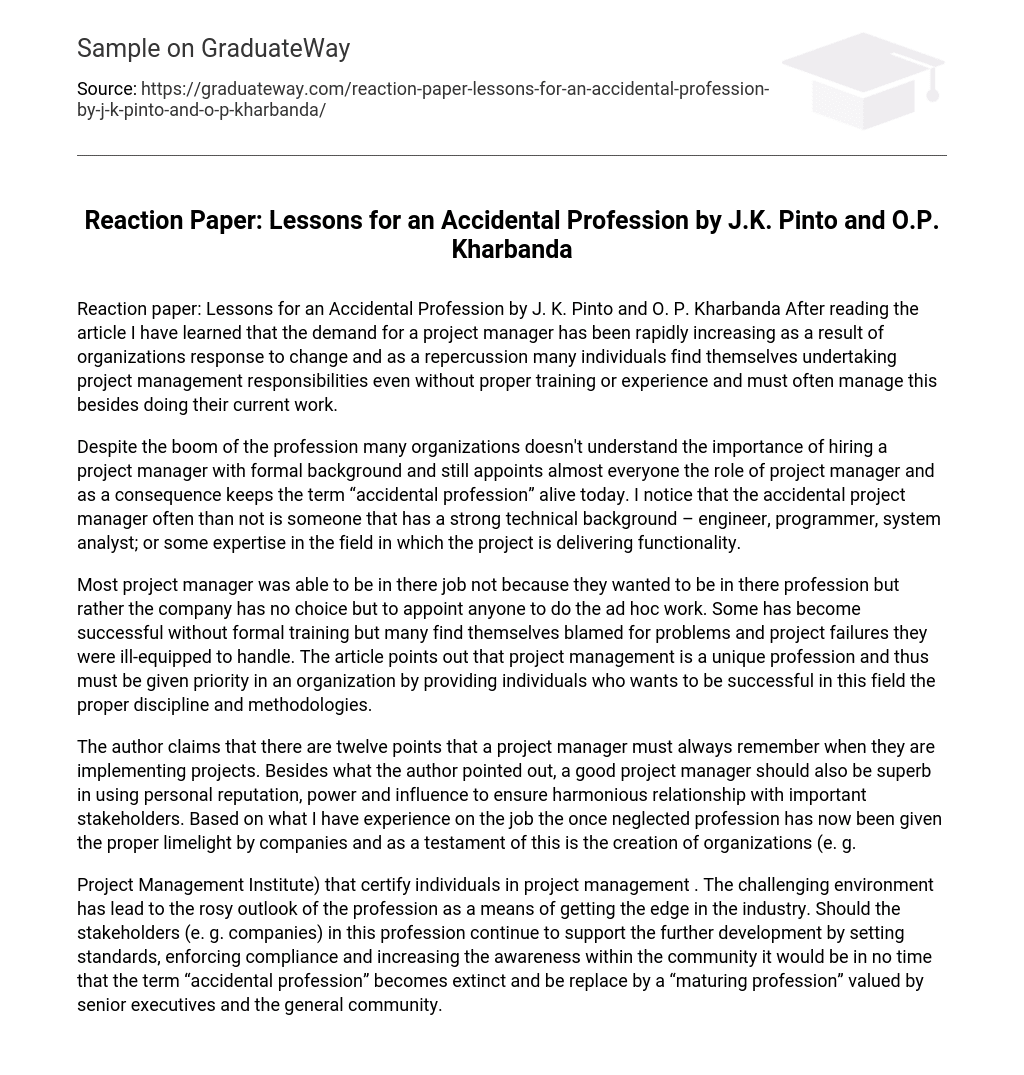It has come to my attention that due to organizations responding to change, the demand for project managers has been rising rapidly. As a result, many individuals are being assigned project management responsibilities without proper training or experience. They often have to juggle these responsibilities along with their current work.
Many organizations fail to recognize the significance of hiring a project manager with formal background knowledge, leading them to appoint almost anyone as project managers. Consequently, the term “accidental profession” continues to prevail. Typically, these accidental project managers possess a strong technical background, such as engineering, programming, or system analysis expertise, relevant to the project’s functionality.
Many project managers find themselves in their role not by choice, but because the company needs someone to handle ad hoc work. While some people succeed without formal training, others face blame for problems and project failures they were not properly equipped to handle. This article emphasizes that project management is a distinct profession and should be prioritized within organizations, offering individuals who aspire to succeed in this field the appropriate discipline and methodologies.
The author asserts that project managers should always keep twelve points in mind when implementing projects. In addition, it is crucial for a project manager to effectively utilize their personal reputation, power, and influence to establish a positive relationship with key stakeholders. From my own professional experience, I have observed that the once overlooked field of project management has now gained recognition from companies. This is evident in the formation of organizations such as the Project Management Institute, which certifies individuals in project management.
The profession’s rosy outlook as a competitive advantage in the industry has been driven by the challenging environment. If stakeholders, such as companies, continue to support its development by setting standards, enforcing compliance, and raising awareness within the community, the profession will soon shed its label as an “accidental profession” and become a “maturing profession” esteemed by senior executives and the general community.





